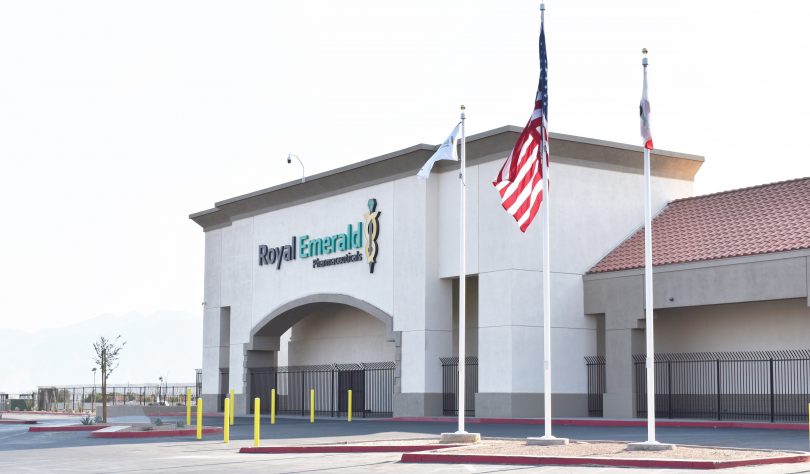In recent years, the cannabis industry has blossomed into a bustling trade that is projected to generate up to $97.35 billion in revenue by 2026. Though the numbers are impressive, there is still much more to the industry than mere profit margins and bottom lines.
Indeed, there are entrepreneurs entering the industry aiming to help people feel better, and not just make a quick buck. Royal Emerald Pharmaceuticals CEO Mark Crozier seeks to do just that by bringing non-addictive medicines to veterans and first responders suffering from a range of issues, including post-traumatic stress disorder (PTSD) and chronic pain.
The current dilemma, according to Crozier, is the widespread usage of opioids to alleviate patients’ pain, which leads to a path of addiction and quite possibly, death. Opioids were linked to nearly 50,000 deaths in 2019, accounting for 70.6% of drug overdose fatalities, according to the Centers for Disease Control and Prevention. Crozier told Terpenes & Testing Magazine that his experience as a retired Army Ranger and federal police chief is intimately connected to Royal Emeralds’ mission statement: “Safe, effective, and non-addictive medicines.”
Crozier’s biggest obstacle so far has been the Food and Drug Administration (FDA), which has yet to grant Phase 1 approval to a cannabidiol (CBD)/ tetrahydrocannabinol (THC) drug that Royal Emerald seeks to produce. He told Terpenes & Testing Magazine in 2020 that he is on track to obtain the right license that would enable to company to earn FDA approval.
“We are on the path to get the right licenses so we can do clinical trials and develop cannabis-based medicines,” Crozier told Terpenes & Testing Magazine. “The science is there for cannabis as a medicine but for too long it has just been hearsay.”
Crozier’s hopefulness in receiving future government support is deeply enmeshed in the company’s insatiable desire to go through the federal wringer-like approval process. But where does Royal Emerald stand today in the post-pandemic landscape? While it is true that many restrictions remain in place, including mask mandates and vaccination requirements, much of America has begun to reopen.
What were once dormant laboratories and manufacturers are now hotbeds of activity. When asked how the company stands today, Crozier said: “Things are starting to move again. COVID has been a big detractor for us. Now things are starting to normalize.”
The coronavirus pandemic “wasted a year” according to Crozier and turned out to be a massive money sink to the entire enterprise. Nonetheless, he remained optimistic and said the company learned how to be “creative” in order to make ends meet.
“You survive, you get a little creative on how to move forward,” he said. “We did keep building; we were able to work on that.” Crozier added that supply-chain disruptions proved to be a challenge, mirroring many businesses across the U.S.
When asked where the company was in achieving FDA approval, Crozier said that they had found another U.K.-based pharmaceutical company that produces a drug containing THC, which he hopes will be able to be brought over for trials.
“[We] formed a collaboration agreement. They have the same vision we do. They are veteran, first responder focused,” Crozier excitedly said. He said that the federal government doesn’t present an immediate risk to Royal Emerald as its products are classified as “botanicals.”
On the question of the Biden administrations and its stance on cannabis, Crozier did not seem the slightest bit concerned.
“The administration agrees that additional research needs to be conducted on the safety of these products,” he said. “We know the administration shares that desire to further that research.”









